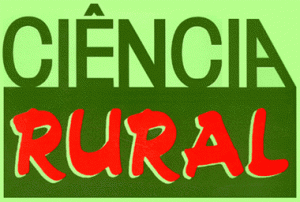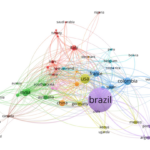Maria Luiza De Grandi, journalist of Ciência Rural. Santa Maria, Rio Grande do Sul, Brazil.
Adriano Jakelaitis, Professor at Instituto Federal Goiano, Campus Rio Verde. Rio Verde, Goiás, Brasil.
 The use of agrochemicals such as herbicides results in environmental impacts on the soil. Thus, it is increasingly necessary that sustainable technologies be used to reduce contaminants. An example of a widely used agrochemical is hexazinone, an herbicide from the chemical group of triazinones, used in sugarcane cultivation (TONIETO & REGINATO, 2014). In order to select hexazinone-tolerant microorganisms that have phosphate solubilization capacity and prepare inoculants associated with the plant in the remediation of soil contaminated with hexazinone, researchers from Instituto Federal Goiano (IF Goiano) developed the research Selection of microorganisms and preparation of inoculants with potential application in the remediation of soil contaminated with hexazinone. The article was published in the Ciência Rural (vol. 51, nº 6).
The use of agrochemicals such as herbicides results in environmental impacts on the soil. Thus, it is increasingly necessary that sustainable technologies be used to reduce contaminants. An example of a widely used agrochemical is hexazinone, an herbicide from the chemical group of triazinones, used in sugarcane cultivation (TONIETO & REGINATO, 2014). In order to select hexazinone-tolerant microorganisms that have phosphate solubilization capacity and prepare inoculants associated with the plant in the remediation of soil contaminated with hexazinone, researchers from Instituto Federal Goiano (IF Goiano) developed the research Selection of microorganisms and preparation of inoculants with potential application in the remediation of soil contaminated with hexazinone. The article was published in the Ciência Rural (vol. 51, nº 6).
The researchers collected twenty soil samples, at a depth of ten centimeters, in a location with a history of application of the herbicide hexazinone, in Rio Verde, Goiás, Brazil. The samples were homogenized to obtain a composite sample. The microorganisms were isolated by serial dilution, seeded in 1 g of soil and diluted in nine mL of saline solution (0.85%). Through the research, soil microorganisms tolerant to the herbicide hexazinone, which is widely used in Brazil in the cultivation of sugarcane, were selected. The selected isolates that showed tolerance were identified using the PCR technique as: Microbacterium arborescens; Bacillus pumilus; Stenotrophomonas maltophilia; Bacillus cereus; and Bacillus saphensis. Another feature evaluated for selection was the ability to solubilize phosphates, which allows the availability of phosphorus, an essential macronutrient for plants, a factor that can benefit their growth, a trait evidenced by the isolates B. pumilus and S. maltophilia.

Imagem: Adriano Jakelaitis.
According to Adriano Jakelaitis, one of the scientists who worked on the research, the characteristics of these isolates could be a sustainable alternative for bioremediation of soil contaminated with hexazinone. Bioremediation is a sustainable technique, as it uses living organisms to recover environments contaminated by recalcitrant substances. “Such an alternative can help to improve the quality of the soil, as well as providing nutrients for plants, helping their growth”, he explains.
The research stands out because of the increased demand for food and the growing consumption of herbicides to improve productivity, the soil and water can be affected by the excess of agrochemicals. “This technique can help to mitigate the negative impacts caused by the use of the herbicide hexazinone, and encourage the expansion of research and sustainable alternatives for the recovery of contaminated soils”, adds the researcher.
References
TONIETO, T. and REGINATO, J. Effects of straw decomposition degree on leaching and weed control efficacy of tebuthiuron and hexazinone in green sugarcane harvesting. Planta Daninha [online]. 2014, vol. 32, no. 4, pp. 808-815 [viewed 4 January 2022]. https://doi.org/10.1590/S0100-83582014000400016. Available from: https://www.scielo.br/j/pd/a/tYk3SnZFL9XBK3L68xpvRDr/?lang=en
To read the article, access
SANTOS, V.S., et al. Selection of microorganisms and preparation of inoculants with potential applications in the remediation of soil contaminated with hexazinone. Ciência Rural [online]. 2021, vol. 51, vol. 6, e20200263 [viewed 4 January 2022]. https://doi.org/10.1590/0103-8478cr20200263. Available from: https://www.scielo.br/j/cr/a/NKf9wYDFwVN9SVFC6Rhkb5w/?lang=en
Link(s)
Ciência Rural: http://coral.ufsm.br/ccr/cienciarural/
Ciência Rural – SciELO: https://www.scielo.br/j/cr/
Como citar este post [ISO 690/2010]:
















Recent Comments